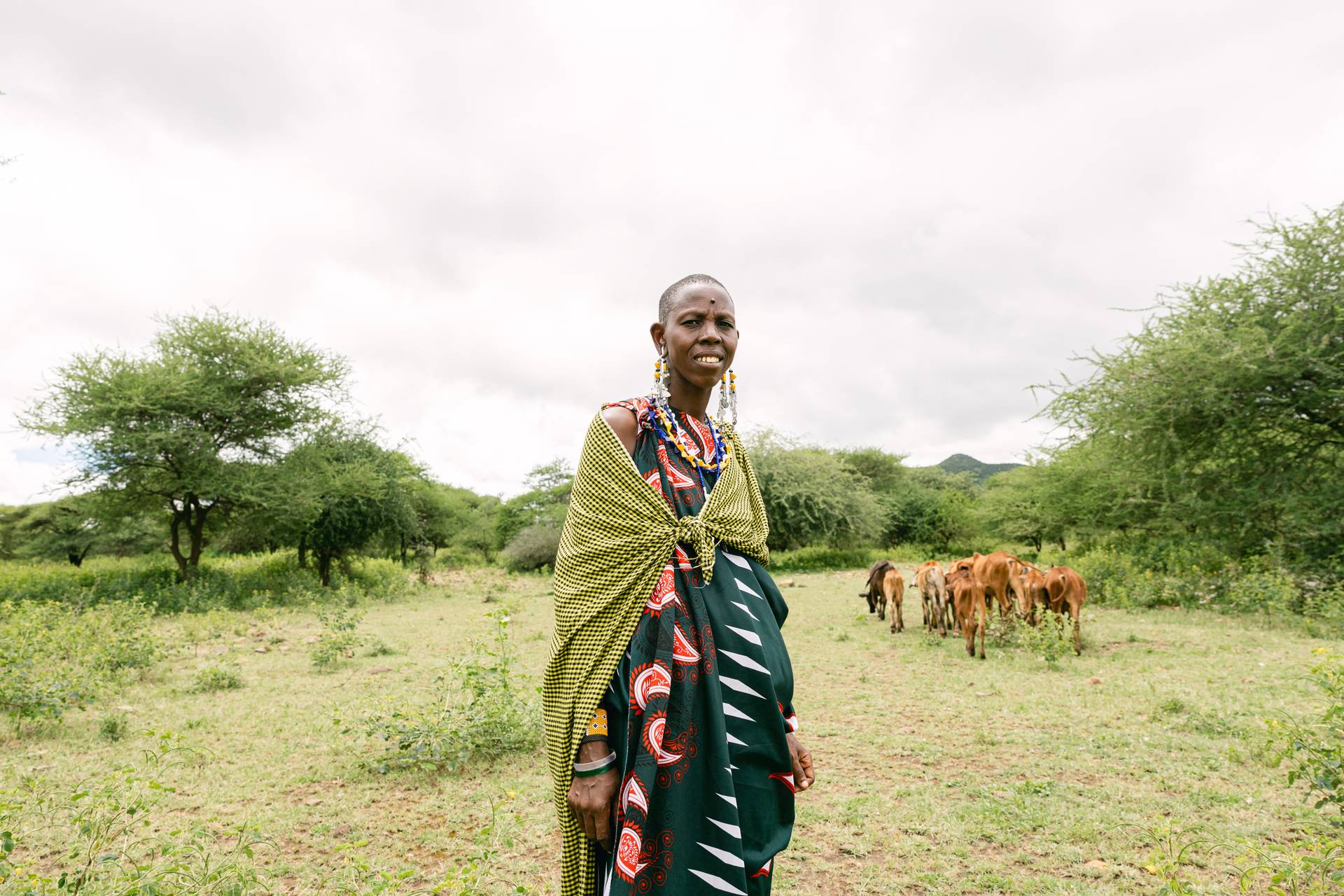Around the world, an equivalent of four football pitches of healthy land becomes degraded every second – adding up to a total of 100 million hectares every year.
Indigenous people manage at least 25% of the planet’s land, and protect 80% of its biodiversity. Scientific evidence shows how their custodianship of land and forests is an indispensable solution to climate change. Yet this important role is largely ignored, and many communities see their land cleared for agriculture, logging, mining, or construction.
So, on World Desertification Day, we’re celebrating an extraordinary community-led initiative that protect the land, lives and livelihoods of indigenous people and their neighbours. It’s the work of Tanzania’s Ujamaa Community Resource Team (UCRT).
In Africa, land grabs of community land are frequently in the news, particularly for tourism, large-scale agribusiness, mining, and more recently, foreign carbon credit developers scrambling to snap up vast swathes of forested land through government deals.
Ashden’s senior programme officer Dawn Stevenson said: “These land grabs often involve the displacement of local communities and have become known as ‘fortress conservation’ – when communities are often harassed and kicked out of their ancestral lands. But there is hope – despite the exploitation and power dynamics at play, there are local organisations supporting Indigenous communities to secure land rights very effectively through new legislation, enabling them to protect and sustainably manage the land, as well as to secure their own livelihoods.”
‘Land is life’ say Ujamaa Community Resource Team
UCRT has secured an incredible 1.7million hectares of land for community use, protecting the lives and livelihoods of more than 400,000 individuals in 120 pastoralist and hunter-gatherer communities.
With the maxim ‘land is life’, UCRT’s magic tool is a novel community-led legislative procedure called Communal Certificates of Customary Rights of Occupancy (CCRO) which secure communal tenure and sustainable natural resource management.
Going from a scenario where communities had lost over 90% of their territories to agricultural expansion, now each year the project prevents over 171,700 trees from being cut and deforestation is now at zero. A vital ecosystem with diverse wildlife is being protected and populations of elephants, lions, cheetahs, wildebeest, and zebra have increased.
The first success was in 2011 when the Yaeda Valley-Lake Eyasi areas, home to the Hadzabe and Datoga communities, were able to secure the first ever Communal CCRO in Tanzania. Through a combined effort by UCRT, international donors and the local communities, UCRT were able to get the Communal CCRO in place and reduce the rate of mass land loss.
Simitei Ngauwo, a Maasai leader from Esilalei village, said: “We’ve worked with UCRT since 2016 when we went round the village together and determined what areas should be used for agriculture, grazing, settlement and so on. They also have land experts and legal experts who worked with us to build our understanding of different laws. We worked together – we put up signs and made ownership certificates. There’s a big village certificate and three documents for grazing areas signed by our village committee and stamped by the regional land commissioner. Now no one can change the use of the areas.”
Once the Communal CCRO title has been secured, UCRT work with the pastoralist, agropastoralist and hunter gatherer communities to demarcate-land for cattle grazing and for hunting and gathering and provide trainings on sustainable and resource management. These groups are now able to secure their long-term management of the land, carrying on the nomadic lifestyle they’ve had for millenia, protecting biodiversity, and handing the land down to future generations – something that could have so easily been lost.
Listening and mediation nurture success
Paine Mako, an Indigenous Maasai woman from Northern Tanzania and the Executive Director of UCRT, said: “UCRT are bridging the gap to help communities navigate land issues, focussing on the need for clear land rights and a comprehensive free, prior and informed consent process.”
They also take on a mediator role with community-focused carbon companies that approach the communities so they can enter into fair contracts and agreements, ensuring the community’s rights are respected and engagement only happens with the community’s consent.
Listening is the key element of the work says Paine Mako and can’t be undervalued: “What is the people’s way of life? What can they contribute to development? If we listen, we are able to create the right solutions for development. As long as we don’t listen to the people, we will continue to create more and more conflict in our inner space where there’s already too much.”
Funding with foresight too, is essential. Despite their importance, forest communities receive less than 3% of all climate finance – a situation which needs to be resolved, says Dawn Stevenson, for the sake not just of the Indigenous communities, but for the natural resources and wildlife essential to the health of the planet.

